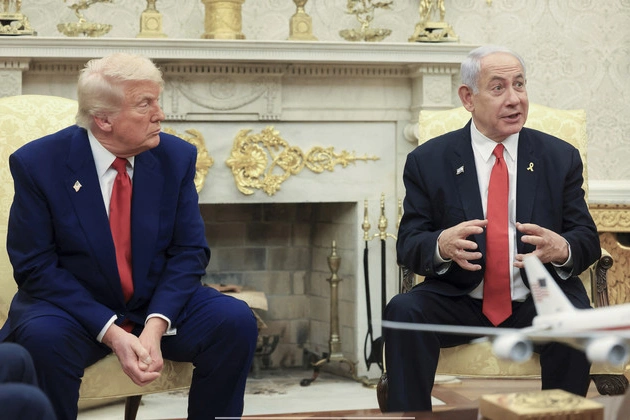
President Donald Trump’s refusal to support Israel’s plan to assassinate Iran’s supreme leader, Ayatollah Ali Khamenei, has sparked debate and raised questions about the future of diplomatic relations in the Middle East.
Opposition to the Assassination Plan
According to reports, Israel had a potential opportunity to eliminate the Iranian leader, but President Trump intervened and expressed strong opposition to the proposed action. An anonymous U.S. official disclosed Trump’s stance, emphasizing his firm rejection of the plan.
While tensions between Israel and Iran have escalated, with military actions on both sides, Trump has reiterated his belief in a diplomatic resolution to the conflict. Despite his critical views of the ayatollah, he maintains hope for a peaceful negotiation process between the two nations.
Response from Israeli Officials
Israeli Prime Minister Benjamin Netanyahu neither confirmed nor denied the reports regarding the assassination plan. When pressed for a response, Netanyahu emphasized the need for Israel to take necessary actions to safeguard its interests, hinting at the possibility of regime change in Iran.
Yechiel Leiter, Israel’s ambassador to the United States, echoed similar sentiments, stating that individuals posing a threat to Israel’s security, including those advocating for its destruction through nuclear weapons and ballistic missiles, remain potential targets for action.
Implications for Diplomacy
The refusal to support the assassination plan underscores the complexities of international diplomacy and the delicate balance of power in the Middle East. As tensions continue to simmer between Israel and Iran, the role of the United States in mediating discussions and promoting peaceful resolutions becomes increasingly crucial.
While the future remains uncertain, Trump’s intervention in this critical moment may have lasting implications for regional stability and the pursuit of diplomatic solutions to longstanding conflicts.











